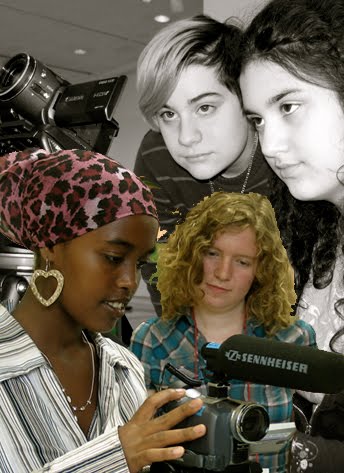Wednesday, March 26, 2008
This is a general question that kind of relates to Undercover. I have noticed that when someone says a really strong opinion, people who disagree tend to either very strongly oppose it/argue, or they will not voice their full opinion and try to downplay the difference of opinion. I am more interested in the second reaction. Why do you think people can be more soft-spoken and passive even about something they disagree about when faced with someone who has a strongly opposite view? Have you ever been in this position?
Subscribe to:
Post Comments (Atom)


4 comments:
Sometimes it is easier to not speak up and keep the peace when someone has a strong opinion because they aren't going to listen to you anyway. So, why use up the energy? The fact that I am not actively agreeing with them or participating in the conversation should cue them to the fact that I don't agree and if they are too wrapped up in their own opinion to notice, I figure they wouldn't listen to me or the logic in my arguements. If they care enough to ask me, then, I feel like they are interested in hearing me and I will share.
Othertimes, my feelings are too complicated for words and cannot be expressed. If I say I disagree, I have to be prepared to explain so on those occasions I don't know how to explain, I also keep silent.
Arguing and debating can be a lot of fun but only when both people understand their topic or are interested in learning about their topic.
This is from Casey BTW. My login isn't working tonight.
That's a good questions Maddy. Do you think people are afraid of saying how they might feel when disagreeing. Is it back to the fear all of you talked about? Fear of being rejected or fear of rejecting someone else (ie. making someone feel bad-fear of offending someone?).
Is this a reaction that teenage girls experience more--and if people don't say their opposition in the moment do they say it later--being resentful or mean about the person they disagreed with?
Or--do some people like to disagree--is it a way to assert your unique personality, to be different? I know some people who are just down right contrarians--always have to say something contrary to the group.
My big question to the group is how does it feel to disagree with someone (or even a group of people) and not say anything?
Lets look at Casey's comment on a more global scale.
We don't agree with genocide in Darfur but we don't say anything as a country (or as the United Nations). We don't agree with China's treatment of monks in tibet and people ask should we boycott the Olympics that are taking place in China..to make a statement about their human rights violations. But, all those athletes that worked so hard to be in the Olympics deserve the chance to compete.
If we don't speak when we disagree, are we actually allowing and silently encouraging action/opinions that we believe are wrong?
If we don't disagree are we allowing it to continue? Is speaking up to keep the peace actually keeping the peace or allowing the perpetuation of something else.
Speaking up doesn't mean you have to change someone's mind. Sometimes speaking up means you just speak up...and that another opinion exists outloud changes the conversation all by itself. I wonder if speaking up could be untangled from arguing or debating..but supporting your right to have a different opinion.
Wow...great questions; tough stuff. One reasons I SOMETIMES keep my own mouth shut is when I'm not sure I know enough about an issue to make a strong case for my view. I'm concerned that if I get challenged I'll end up looking stupid or I will just add to the other person's conviction that they are right.
Hmmm...must give this more thought.
Post a Comment